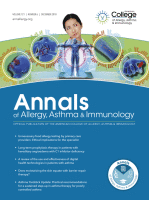 Bournemouth University invites expressions of interest from early and mid-career researchers at Bournemouth University, looking to build a research team to tackle a distinctive research problem.
Bournemouth University invites expressions of interest from early and mid-career researchers at Bournemouth University, looking to build a research team to tackle a distinctive research problem.
The purpose of this scheme is to support talented scholars who have successfully launched a university career and are now looking to build a research team of sufficient scale to tackle a distinctive research problem. This opportunity will allow for the development and demonstration of research leadership of a modest team, whose research has potential to significantly change the established landscape in a particular field of inquiry.
Institutions are permitted to submit only one application. Applicants should have held a university post for at least two years, but not have developed their research such that the trajectory of their contribution has not been firmly established.
More information about the scheme is available from the Leverhulme Trust. Candidates are advised to check the eligibility criteria very carefully.
Candidates who are interested in making an application to the Leverhulme Research Leadership Award are asked to first submit the following application Leverhulme Research Leadership Awards- EOI 2018-2019 to kerrij@bournemouth.ac.uk no later than 22nd February 2019.
Procedure For applicants
Should you be interested in applying, please note that your expression of interest application will be assessed by the relevant Faculty in the first instance.
If more than one expression of interest is received, a panel will be convened for internal review and one application will be selected. Candidates can expect feedback by 11th March 2019.
The institutional candidate will have the opportunity to work with a research facilitator on their application.
The internal deadline for submitting applications via the Leverhulme Trust’s Grants Management System system will be 5 working days before the external Leverhulme deadline (10th May 2019) – this is to allow time for institutional approval of your application, a requirement by the Leverhulme Trust.
If you have further questions or queries please contact Ehren Milner (emilner@bournemouth.ac.uk) to discuss your suitability for this opportunity.
 Bournemouth University invites expressions of interest from early and mid-career researchers at Bournemouth University, looking to build a research team to tackle a distinctive research problem.
Bournemouth University invites expressions of interest from early and mid-career researchers at Bournemouth University, looking to build a research team to tackle a distinctive research problem.















 Upcoming opportunities for PGRs – collaborate externally
Upcoming opportunities for PGRs – collaborate externally BU involved in new MRF dissemination grant
BU involved in new MRF dissemination grant New COVID-19 publication
New COVID-19 publication MSCA Postdoctoral Fellowships 2024
MSCA Postdoctoral Fellowships 2024 Horizon Europe News – December 2023
Horizon Europe News – December 2023